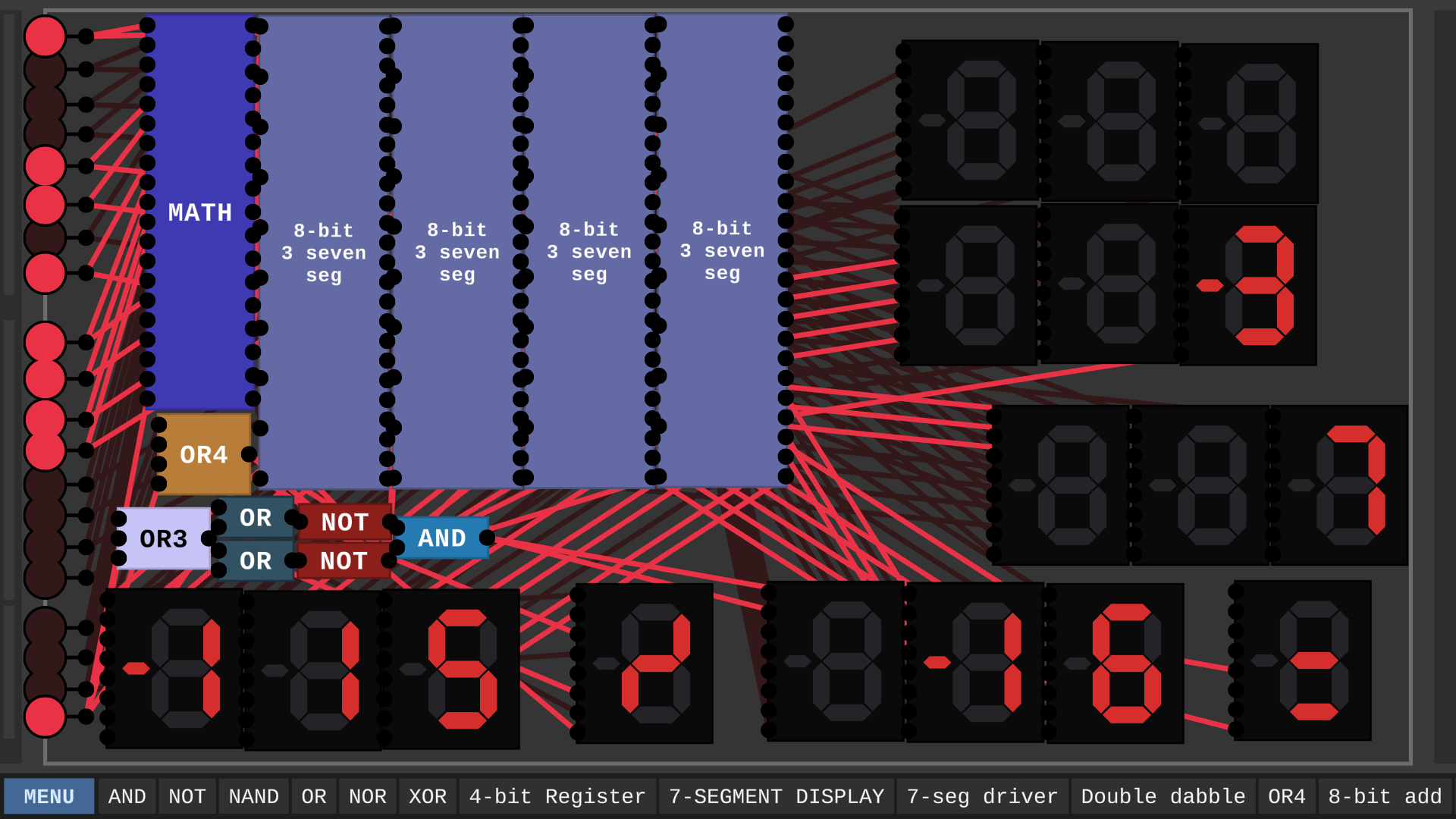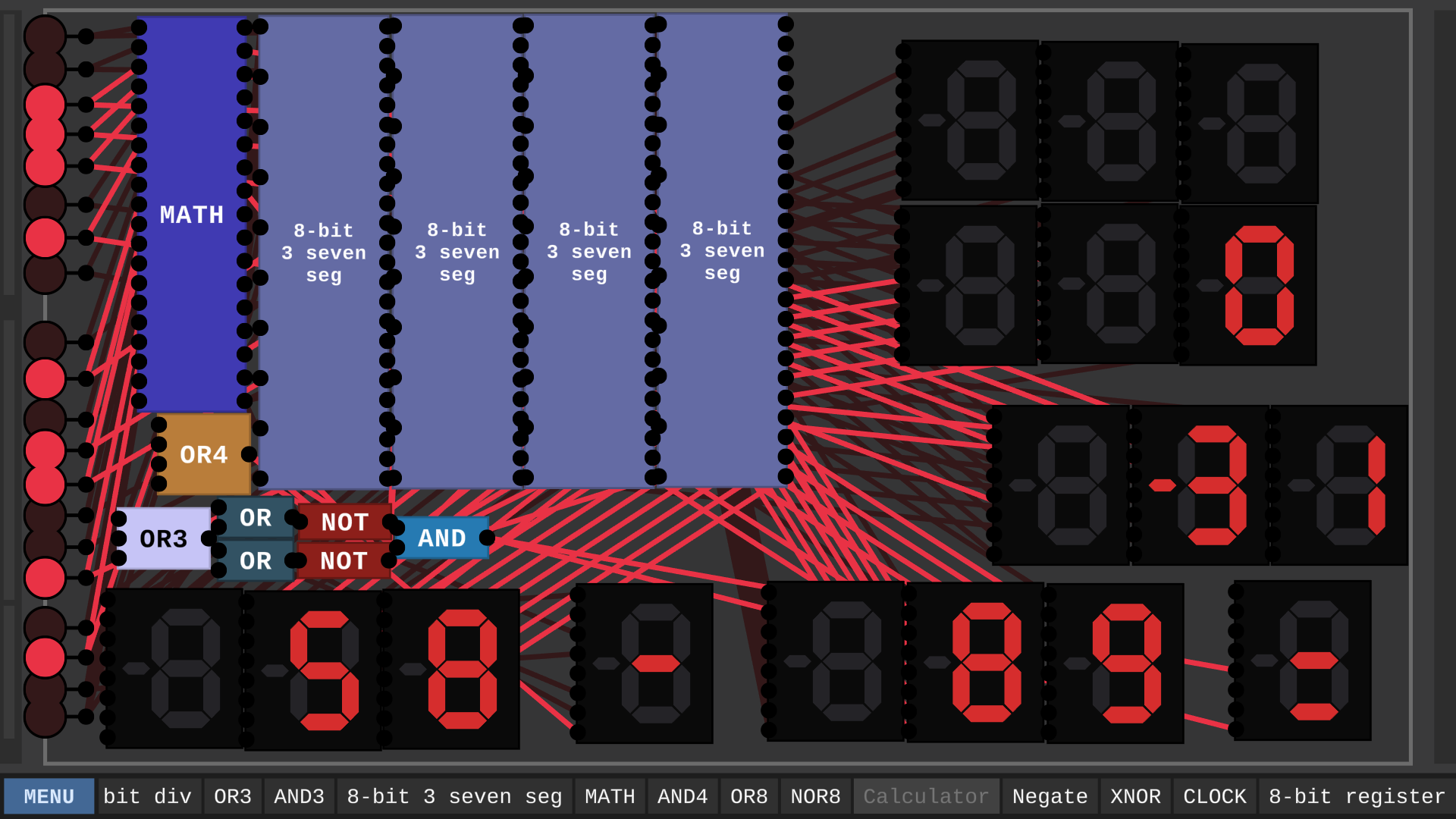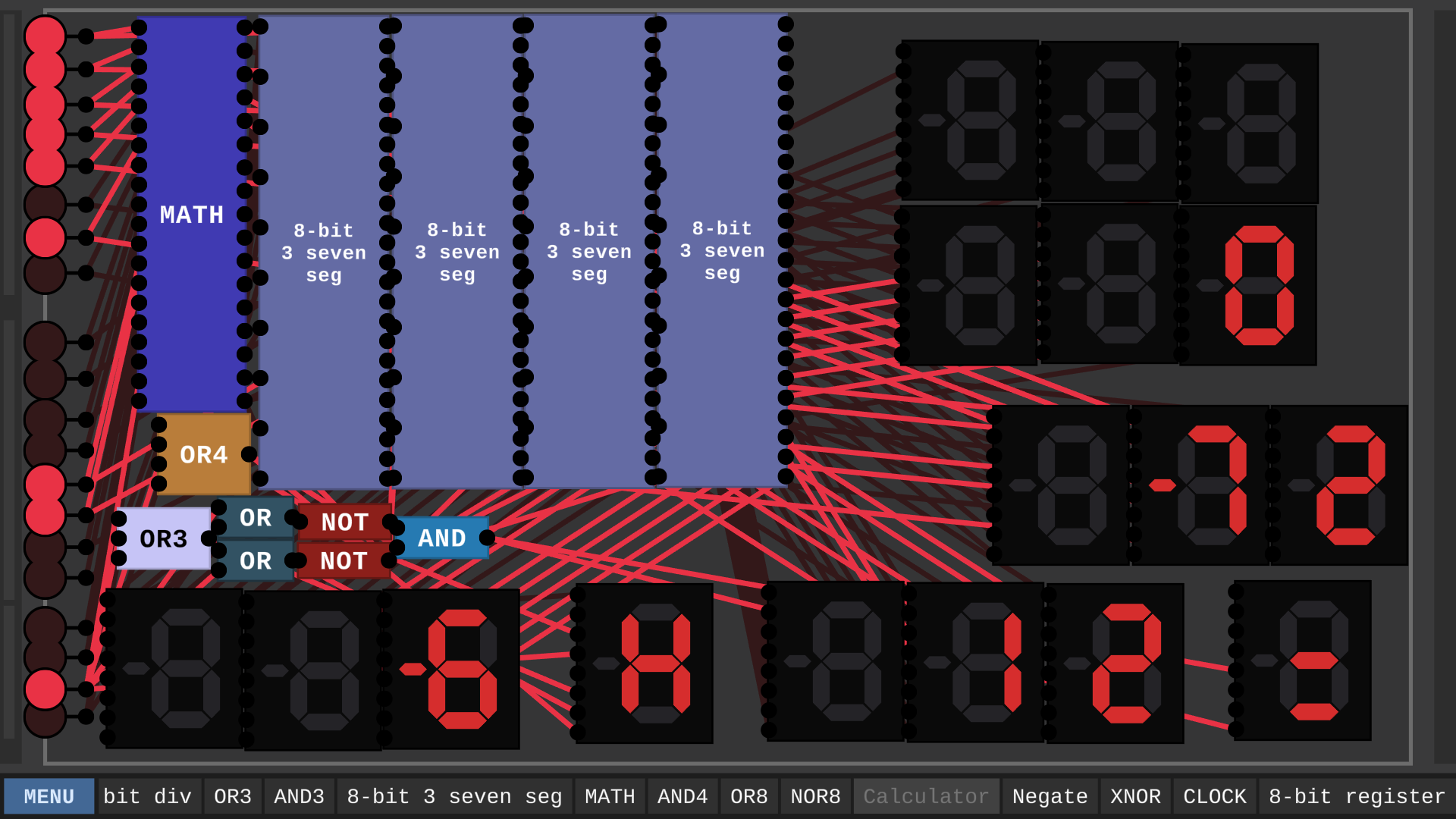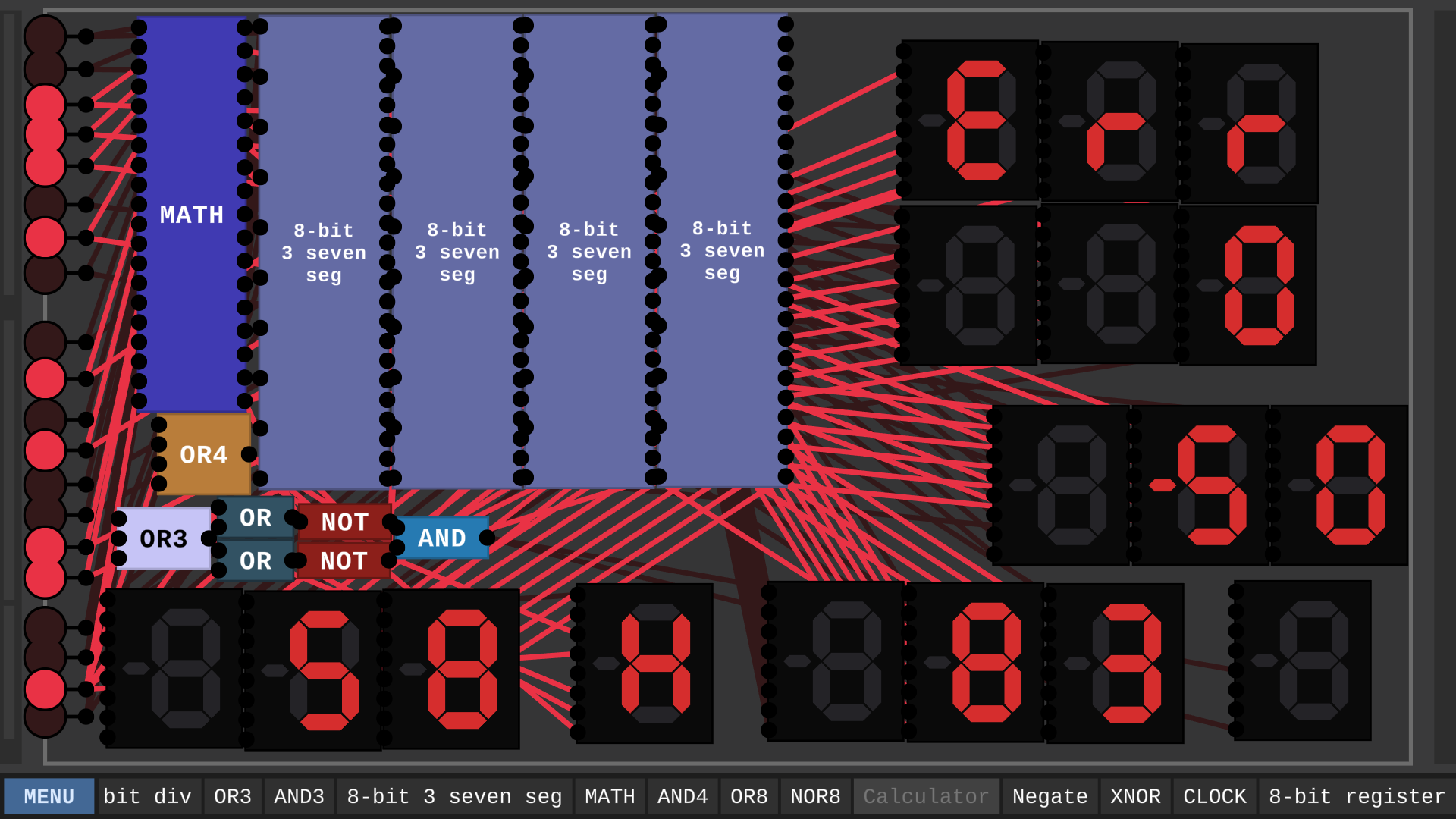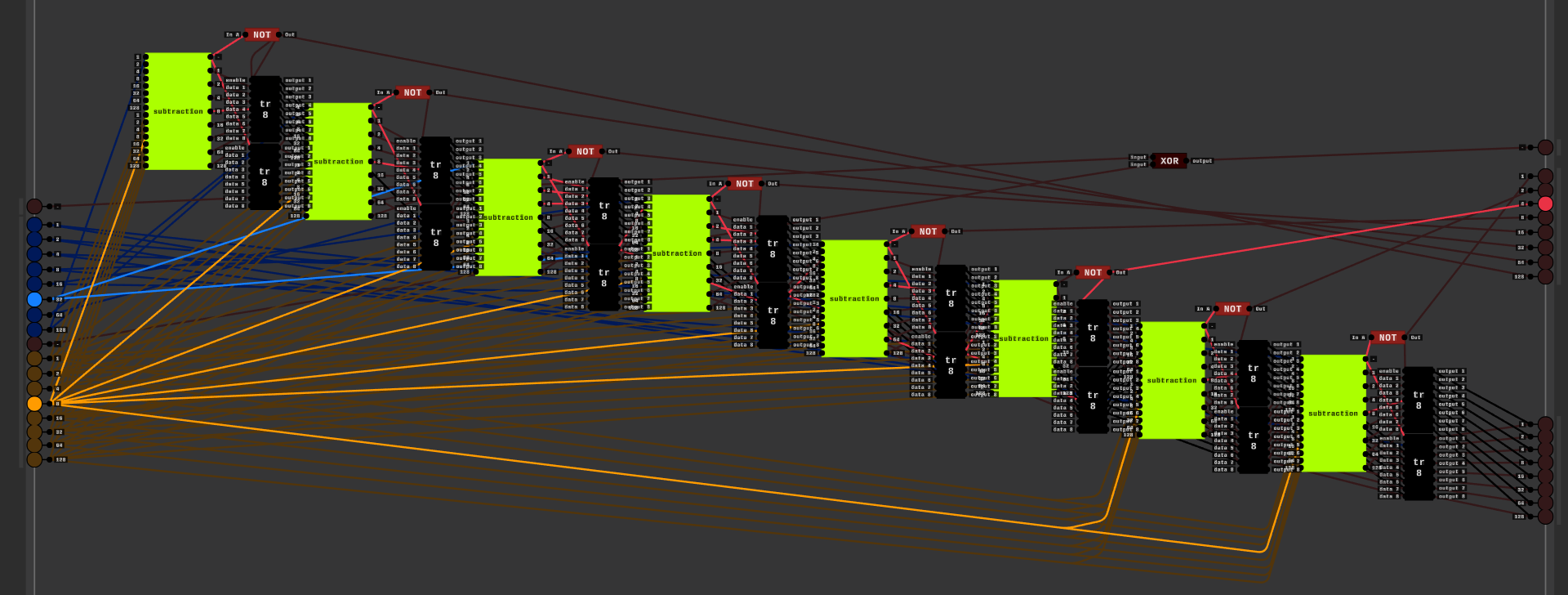It is finally completed.
This calculator took FOREVER to make. Well, here it is. You put in your numbers select an operation and It gives you an output. The bottom two numbers are your inputs, the one above them is your answer. Above that is your remainder (Only for division.) The last one is the error. It will display "Err" if It detects an error. I think I found all of the errors, but I could have missed some. It is compatible with negatives.
